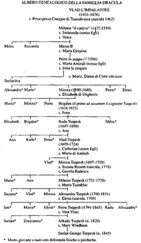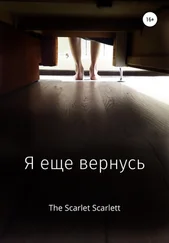I put my hand to my mouth in an effort to stifle a sob, but failed altogether. Bona rose from Galeazzo’s desk and wrapped her arms around me as I wept.
Late that afternoon, I resorted to subterfuge by asking Francesca to pack my things and leave them in Matteo’s room. After nightfall, when Caterina was fast asleep, I went to my husband’s chamber and retrieved his secret papers and the little black pouch containing the mysterious brown powder, and slipped them into the trunk Francesca had filled with my things.
At Caterina’s insistence, I lay beside her in her feather bed, and woke well before dawn. Happily, Galeazzo’s daughter did not stir, but lay so silent I could not hear her breath. I slipped from the bed, dressed quickly, and hurried down to Matteo’s chamber. Just before sunrise, a pair of grooms came to take my trunk, and the three of us headed for the stables. The cold, light mist settled upon my cheeks and eyelashes.
My covered wagon was waiting. The driver, who before age had taken its toll had been master of Bona’s stables, was a tall, skeletal man with sunken cheeks and a cottony white beard. Beside him sat his aged wife, a tiny, equally frail-looking creature with one blind, clouded eye. To my amazement, the driver leapt from his seat and helped the young grooms push my trunk into the back of the wagon with ease. He then caught my elbow and, with an arm thinner than my own, pulled me up into the wagon with impressive strength.
I would have sat beside the pair, but the driver, Gennaro, gestured emphatically for me to sit in the back, and held open the canvas flap for me; he pointed in the direction of the sun, which had just begun to infuse the thick, gathering clouds with a pinkish red glow. The mist would soon turn to cold rain.
I yielded, and crouched low as I moved inside the wagon, half of which was covered with cushions, pillows, and fur throws. The other half bore my trunk, and a coffin fashioned from fresh-hewn, fragrant pine.
I fell to my knees upon the cushions and threw my arms about the coffin as if it were Matteo himself; I put my cheek against the smooth, sanded wood and wept. I had known, of course, that my husband would accompany us, but I had not realized he would travel at my side.
Perhaps later we could go together to Florence.
In the distance, thundered rumbled, and the mist turned abruptly to steady rain. The driver called to the horses; the wagon shuddered and began to sway. I held fast to the coffin, and did not look up until I heard a girl shriek and the horses neigh. I poked my head out through the half-open flap and saw Caterina.
She was barefoot, clad only in her woolen nightgown, her long braid bouncing as she rushed toward the wagon. I watched, stricken, as she waved her arms, her face contorted with grief, and shrieked my name.
“Dea! Dea!”
Her desperation and fear were unfeigned, her voice so heartrendingly shrill that I squeezed my eyes shut.
I retreated back into the wagon and clutched the coffin, sobbing, until distance and pelting rain swallowed the sound of her cries.
Chapter Eight
We traveled southeast across the plain, along the banks of the Po, and crossed the rushing waters at San Pietro, before the river grew wildly serpentine. From dawn to dusk I rode inside the covered wagon next to the pine coffin, my palm pressed to the wood as if it were Matteo’s hand. From time to time, the rain grew deafening as it pelted the canvas, but it stopped altogether as we passed Piacenza’s city walls in the late afternoon; I opened the back flap and glimpsed the region known as the Emilia, its hillsides terraced with vineyards. We did not pause there, but continued half an hour after the sun had set, coming to rest finally at an inn. By then, I was chilled to the bone; the wagon’s interior had been so cold I could see my breath.
There was but one room to be found, so I took the straw mattress while the driver and his wife—who, I learned, was totally deaf—lay snoring upon pillows on the floor. While they slept like the dead, I left the candle burning and delved into my trunk to take out Matteo’s papers. I meant to slip them into my cloak, intending to read them the next day, but was so restless that I began to read On the Egyptian Mysteries, attributed to Iamblichus.
I did not read for long. It had been four years since I had applied myself to Latin, and my understanding was at times wanting, but what I understood frightened me. Iamblichus spoke of pagan gods, demons, astrology—and a personal demon whose name could be known by studying one’s natal stars. Worse, it spoke of telling the future: Ecstasy or alienation of mind is the basis of divination, also the mania which accompanies disease.
Troubled, I soon left off reading. Even so, I slipped the papers into my cloak; if Matteo had thought this subject worthy, I was obliged to understand why.
The next day we passed Parma, and more carefully terraced rows of grapevines, bare and gnarled in winter. I had no opportunity to read more; the elderly wife had begun to cough, and I made her lie in the wagon beside Matteo while I sat beside the old driver and stared at the nearby Apennine Mountains, forested with bare-limbed chestnut, beech, and oak.
That night we stopped some hours past Modena. This time, the accommodations were better, and I had my own room. I stayed up quite late rereading Iamblichus; at the manuscript’s end was a letter in the vernacular, written in the same modern hand that had provided the translation of the ancient Greek ritual, yet not part of it.
To my beloved, it said,
This is in reference to the ritual I sent for your edification, in hopes it—and this translation of Iamblichus of Syria, a follower of our dear Plato—will set you well upon the path to union with the Divine.
The ritual predates both men by centuries, but was assuredly used by them and their students. Its purpose: to invoke the personal daemon, as the Greeks called him; we know him better as the Holy Guardian Angel, that divine inner genius which guides our soul surely to union with its Creator. For God cannot be grasped through the mind, or through contemplation alone, but through the heart, which is exalted in ritual. As a pagan, Iamblichus was not blessed with the knowledge of our Savior, and so much of his writing reflects this ignorance, but much of it is of great use to us today. I am of the belief that God granted His grace even to the heathens, in order that those ignorant of Christ yet men of good will could come to know Him through the dedicated practice of the rite of the Bornless One.
How shall we know, you ask, whether the ritual has been successful? Heed Iamblichus, who says, “The arrival of the archangels is preceded by the appearance of light.”
Of the angel, I must say little, for each man has his own, and each soul must travel its own path to divine union; one man’s salvation cannot be another’s. It is therefore imperative that once you have attained conversation with the angel, you speak of it to no one, lest you fall into the error of believing that you alone have a special connection to the Divine, or that the lessons meant for you alone should be inflicted upon others.
As for the precious contents of the little bag: Immediately before commencing the ritual, take half a small spoonful, no more; use wine to cut the bitterness. See that it never falls into the hands of the profane, or is used wastefully. This, too, must be accomplished in strict privacy, and never be mentioned to outsiders.
May this rite, which was handed down to us by the ancients, guide you to a greater knowledge of the One Who created us all.
In eternal friendship,
Your servant,
Marsilio
On the third day, the wife was so ill that she lay coughing all day inside the wagon; I sat beside the driver again as we skirted the mountains. The weather was dry, sunny, and mild, and remained that way on the fourth day. We stopped at other inns, but I read no more; the letter by the mysterious Marsilio had assuaged some of my fears, but raised other uncomfortable questions. I remained puzzled, confused, thoroughly intrigued.
Читать дальше












